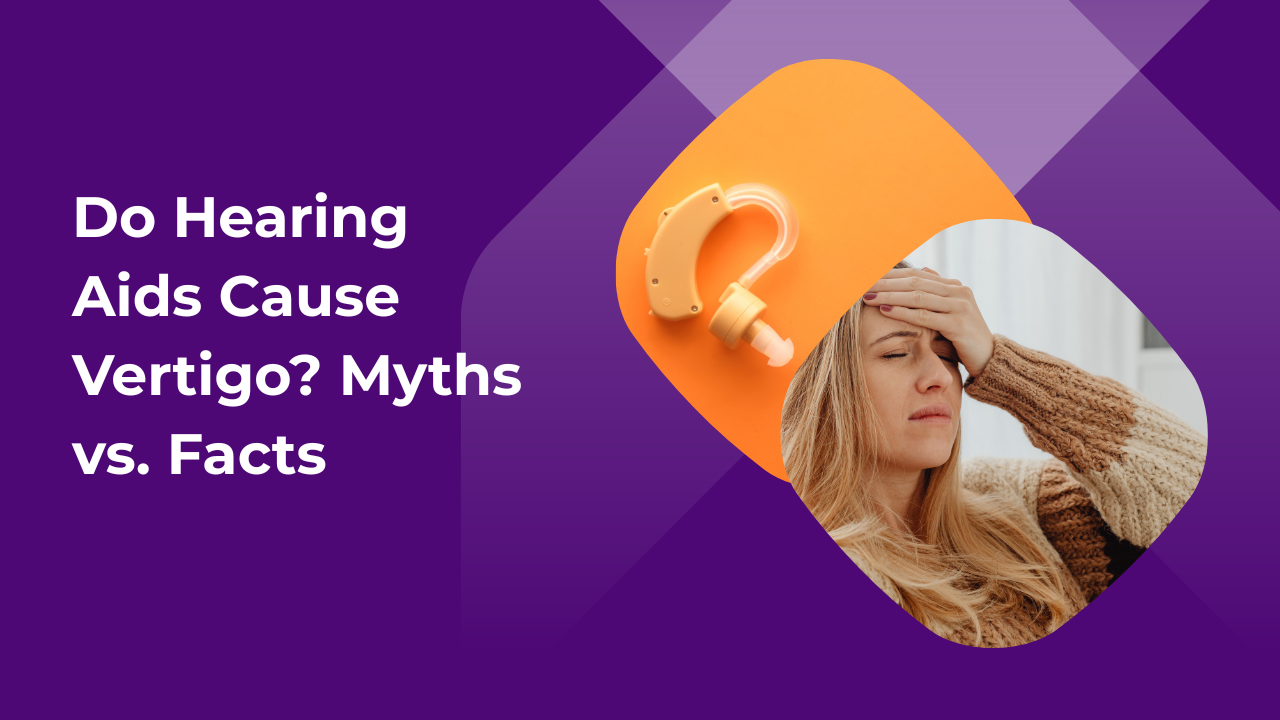Hearing aids have transformed the lives of millions by improving sound clarity, speech comprehension, and quality of life. However, many first-time users are concerned about potential side effects. One question we often hear at Crystal Hearing Solution is: “Can hearing aids cause vertigo?
Let’s address this concern and clarify the connection between hearing aids and vertigo symptoms.
What is Vertigo?
Vertigo is not a disease itself but a symptom. It creates the feeling that either you or your surroundings are spinning or moving. Common symptoms include:
- Dizziness
- Balance problems
- Nausea or a swaying sensation
Most cases of vertigo are linked to inner ear issues, such as:
- Vestibular dysfunction
- Benign Paroxysmal Positional Vertigo (BPPV)
- Meniere’s disease
- Infections or inflammation of the inner ear
These conditions affect the vestibular system, which controls balance and spatial orientation.
Debunking the Myth
Despite common belief, hearing aids do not directly cause vertigo. However, some users may feel mild dizziness or unsteadiness when they first start using them. This is often due to:
- Brain re-adaptation to amplified sounds
- Improper fitting of the device causing pressure sensations
- Unidentified underlying ear conditions
In rare cases, earwax blockage or moisture buildup while wearing hearing aids can lead to sensations that resemble vertigo. These are easily correctable with proper care and device management.
How Crystal Hearing Solution Supports Patients
At Crystal Hearing Solution, our team of expert audiologists takes a comprehensive approach to hearing health. Before recommending any device, we conduct a thorough audiometry test in Mumbai to evaluate your hearing profile and balance symptoms, if any.
Our services include:
- Accurate testing with the latest diagnostic equipment
- Customized hearing aid fitting for maximum comfort and clarity
- Regular follow-ups to fine-tune devices and address concerns
With professional guidance, the risk of discomfort or dizziness is minimized significantly.
Tips to Manage Dizziness When Using Hearing Aids
If you experience mild disorientation during your initial adjustment phase, try these steps:
- Gradual adjustment: Start by wearing your aids for short durations.
- Use modern features: Devices like bluetooth enabled hearing aids allow better sound control, helping reduce disorientation.
- Keep your ears clean: Ensure no wax buildup that can interfere with balance.
- Consult your audiologist: Any prolonged symptoms should be reviewed by a specialist.
Modern technologies in hearing aids are designed for ease and adaptability, especially when features like wireless streaming and smart volume control are involved.
When to See a Specialist
Although dizziness is rare and usually temporary, there are situations where further medical attention may be required:
- Persistent or worsening vertigo despite using hearing aids
- Suspected vestibular disorders unrelated to hearing
- Symptoms like vomiting, double vision, or sudden hearing loss
Advanced devices like rechargeable hearing aids offer fewer interruptions and are ideal for patients who want minimal handling and more stability in usage. These can also reduce discomfort for people prone to vertigo-like symptoms.
Conclusion
Hearing aids do not cause vertigo, but poor fitting, adjustment issues, or existing ear conditions may lead to dizziness. The good news? These problems are manageable with professional care.At Crystal Hearing Solution, we ensure each patient receives the right hearing aid, personalized guidance, and modern solutions such as bluetooth hearing aids that offer clarity, convenience, and confidence.





